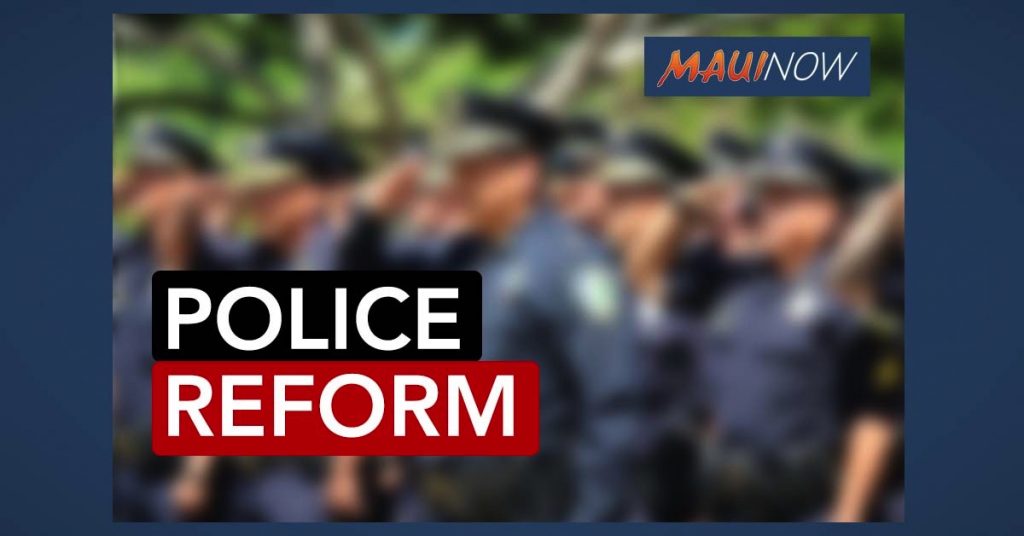President Trump Issuing Executive Order on Police Reform
President Trump is is issuing a new Executive Order today involving police reform. The order seeks to create a national database to track terminations, criminal convictions, and civil judgments against law enforcement officers for excessive use-of-force.
This is aimed at creating accountability and tracking misconduct. Under the Order, incentives include certain grant funding for law enforcement agencies that meet high standards.
- President Trump is directing his Administration to develop and propose new legislation to Congress to further the policies of the Order and build community engagement.
Meantime, US Representative Tulsi Gabbard (HI-02) cosponsored both H.R. 7120, the Justice in Policing Act, and H.Res. 988, condemning police brutality, racial profiling, and the use of excessive and militarized force.
Rep. Gabbard notes the legislation comes in the wake of the death of George Floyd in Minneapolis.
“As a nation, we must address the many systemic problems that have brought us to this point by enacting significant reforms. This legislation takes the first steps in being able to do that. These problems are complex, will not be solved overnight, and will require us to come together as Americans, in the spirit of aloha — respect and love for others — taking a stand for justice and equality for all,” said Rep. Gabbard.
H.R. 7120, the Justice in Police Act improves police accountability and transparency by:
- Establishing a National Police Misconduct Registry to prevent problematic officers who are fired or leave the agency from moving to another jurisdiction without any accountability.
- Requiring states to report any incident where use of force is used against a civilian or against a law enforcement officer to the Department of Justice.
- Amending the federal threshold for defining police misconduct from “willfully” violating constitutional rights to doing so with “knowing or reckless disregard.”
- Curtailing qualified immunity, which broadly shields police officers from being liable for damages for civil rights violations, opening the door to more criminal prosecution and civil lawsuits.
- Granting subpoena power to the Department of Justice and state Attorneys General to investigate practices and patterns of discrimination and creating a grant program for state Attorneys General to develop authority to conduct independent investigations into problematic police departments.
- Creating law enforcement training programs to develop best practices and requiring the creation of law enforcement accreditation standards recommendations.
- Prohibiting federal, state, and local law enforcement from racial, religious, and discriminatory profiling, and mandating training on racial, religious, and discriminatory profiling.
- Banning chokeholds, carotid holds, and no-knock warrants at the federal level.
- Limiting the transfer of military-grade equipment to state and local law enforcement.
- Mandating the use of dashboard cameras and body cameras for federal offices and requiring state and local law enforcement to use existing federal funds to ensure the use of police body cameras.
- Making lynching a federal crime for the first time.
H.Res. 988 condemns all acts of police brutality, racial profiling, and excessive use of force and calls for the end of militarized policing practices in communities. This resolution also:
- Supports efforts to eliminate excessive use of force, conduct stringent oversight and investigations, and hold individual law enforcement officers and police departments accountable for instances of police brutality, racial profiling, and violence;
- Calls on the Department of Justice to reinstitute its authority to investigate individual instances of police brutality, racial profiling as well as police departments accused of violating civil rights;
- Supports meaningful local and community led transparency and oversight efforts, including all-civilian review boards with the authority to effectively investigate incidents of police misconduct.
- Calls for the adoption of “sound and unbiased law enforcement policies” at all levels of government to reduce the “disparate impact of police brutality and use of force on Black and Brown people and other historically marginalized communities.”











